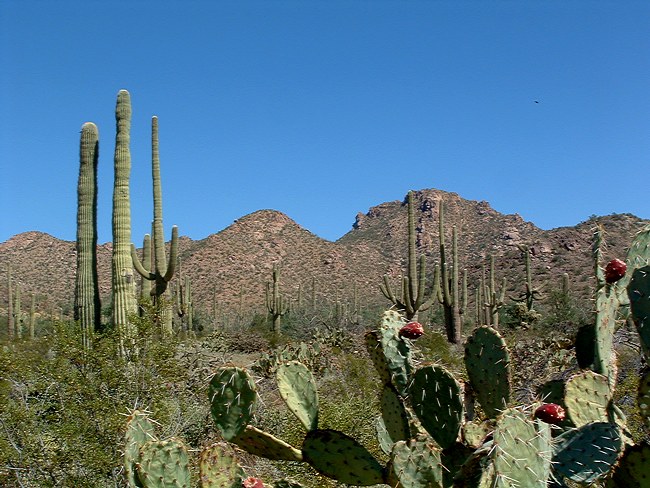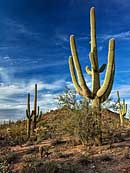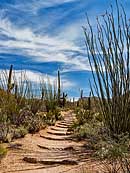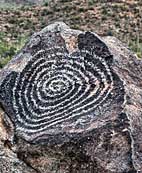|
Scenic USA - Arizona Saguaro West (Tucson Mountains) |

| Photos by Marty Straub Marty's Saguaro National Park Gallery |
The great saguaro cactus defines the  landscape of the Sonoran Desert and this distinct desert view is capped off with a variety of cactus plants. The Saguaro National Park is split by the city of Tucson into two different sections. While the eastern section is defined by the Rincon Mountains, the west is dominated by the Tucson Mountain Range. Saguaro West offers some of the easiest ways to become acquainted to the Sonoran Desert and its plants and animals. And there's plenty to see, as the Sonoran Desert is home for 2500 plant and animal species, more than any other desert in the world.
landscape of the Sonoran Desert and this distinct desert view is capped off with a variety of cactus plants. The Saguaro National Park is split by the city of Tucson into two different sections. While the eastern section is defined by the Rincon Mountains, the west is dominated by the Tucson Mountain Range. Saguaro West offers some of the easiest ways to become acquainted to the Sonoran Desert and its plants and animals. And there's plenty to see, as the Sonoran Desert is home for 2500 plant and animal species, more than any other desert in the world.
The Red Hills Visitor Center offers exhibits, audio-visual programs, maps, brochures and a friendly  ranger to help with your plans. The six mile Bajada Loop Drive leads to stops at Signal Hill and the Valley View Nature Trail. It's always a nice treat to discover the enigmatic petroglyphs at Signal Hill and maybe spot a few desert denizens on the nature trail. Looking up into the arms (branches) of the saguaro, a half dozen different species of birds and owls make their homes in nest holes. Slowest growing of all desert cacti, the 150 year old saguaro may reach 45 feet in height, creating an excellent apartment complex for
ranger to help with your plans. The six mile Bajada Loop Drive leads to stops at Signal Hill and the Valley View Nature Trail. It's always a nice treat to discover the enigmatic petroglyphs at Signal Hill and maybe spot a few desert denizens on the nature trail. Looking up into the arms (branches) of the saguaro, a half dozen different species of birds and owls make their homes in nest holes. Slowest growing of all desert cacti, the 150 year old saguaro may reach 45 feet in height, creating an excellent apartment complex for  Gila woodpeckers, flickers, warblers, kingbirds and elf owls. Early in the morning or during evenings, when desert temperatures drop, visitors may be able to spot an elusive javelina, road runner, coyote, mule deer or even a mountain lion. Be cautious where you step anytime, rattlesnakes and scorpions don't like to be mistaken for doormats!
Gila woodpeckers, flickers, warblers, kingbirds and elf owls. Early in the morning or during evenings, when desert temperatures drop, visitors may be able to spot an elusive javelina, road runner, coyote, mule deer or even a mountain lion. Be cautious where you step anytime, rattlesnakes and scorpions don't like to be mistaken for doormats!
Unknown to most desert visitors, the saguaro's arms don't appear on the slow-growing icon for 70 years. In the spring, the saguaro produces white flowers on the upper stems of mature plants. Later, sweet edible red fruit appear. Native Tohono O'odhams used these fruit to make jam, syrup and also wine. So important was the fruit, the harvest season marked the Tribe's new year.
Area Map
Tucson Mountain District Map

|
Additional Points of Interest |
|
Copyright © 2024 Benjamin Prepelka
All Rights Reserved
